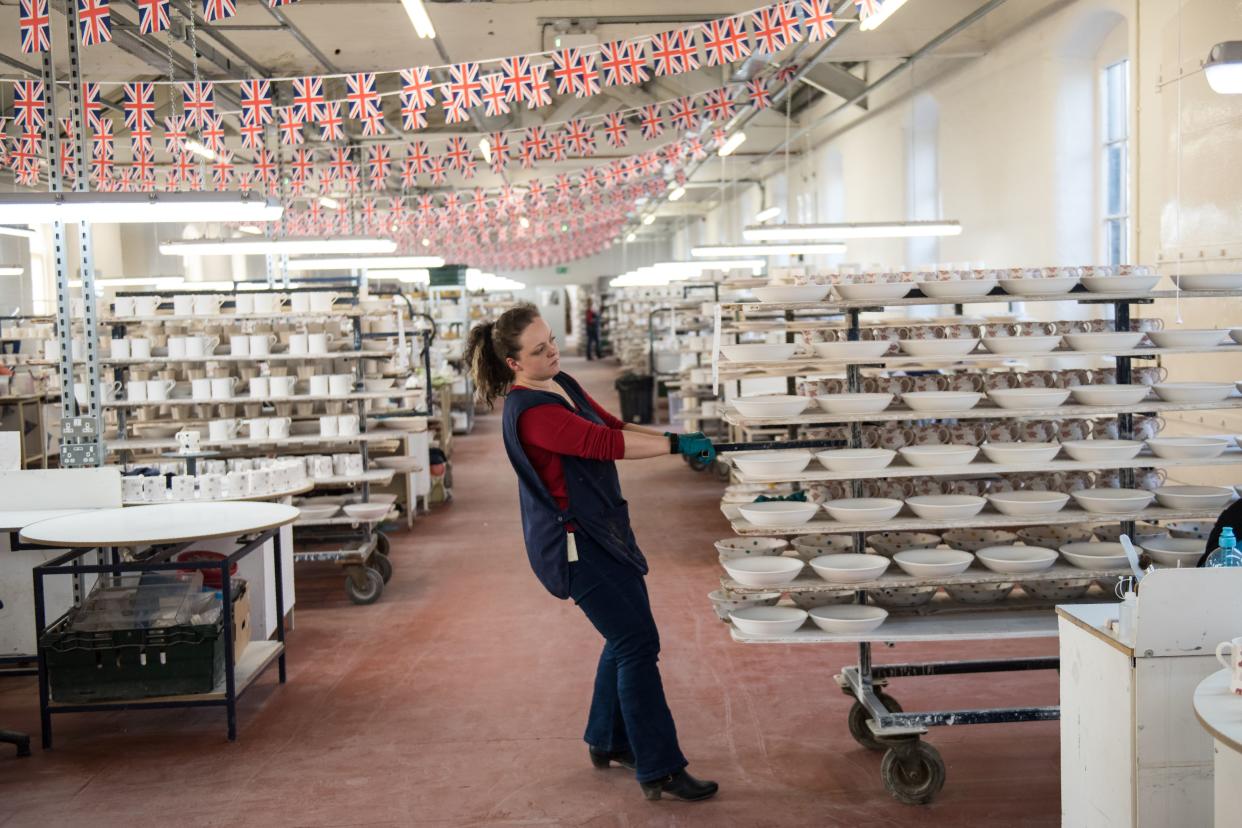Labour claims new tariff plan 'risks destroying' UK's manufacturing sector

The UK government’s new tariff schedule “risks destroying” the steel, ceramics and car industry, according to a Labour frontbencher.
Shadow minister for small business Bill Esterson told Yahoo Finance UK on Wednesday the adjusted tariff regime ahead of a potential no-deal Brexit could wreck Britain’s manufacturing sector.
“Steel, ceramics and the car industry could all suffer greatly as the UK becomes a magnet for dumping cheap goods on an unprecedented scale. These sectors have invested in getting ready for Brexit, only to see the government say they will drive down the cost of their competitor's goods at home but with no attempt to help secure similar low tariffs for our manufacturers to sell abroad,” Esterson said.
The revised tariffs makes 88% of imports eligible for a levy-free access and are designed to keep prices down in the event of a no-deal Brexit, according to the Department for International Trade.
“The UK will be leaving the EU on 31 October and we are working with businesses to ensure the UK is ready to trade from day one. Our temporary tariff regime will support the UK economy as a whole, helping British businesses to trade and opening up opportunities for business to import the best goods from around the world at the best prices for British consumers,” said Conor Burns, minister of state for international trade.
READ MORE: No tariffs for 88% of imports in event of no-deal Brexit
Critics of the move believe that the new schedule could threaten British business and “destroy some of [the UK’s] last great manufacturing industries.”
“The Conservatives are even managing to drive away prospective trade partners. Why would governments like Canada drop their tariffs on UK goods when their exporters have already got free access to the UK market? This government is trying to lock the stable door after the horse has bolted,” Esterson said.
Federation of Small Businesses chairman Mike Cherry said that while the tariff adjustments will be “good news in certain sectors”, the “cold hard fact remains that two-thirds of small businesses that fear the impacts of no-deal feel they cannot prepare for this outcome.”
READ MORE: No-deal Brexit will hit UK economy hardest and make UK debt skyrocket
Cherry called for a financial assistance scheme to help small businesses, and a long-term view on policy. “The average cost of preparation to small exporters and importers of putting contingencies in place is £3,000,” he said.
“Fundamentally, small firms are crying out for two things at this point: a pro-business Brexit deal and financial assistance to help manage the costs of uncertainty. The urgent issuing of £3,000 export vouchers is a must.
“It’s also important to stress that these tariffs only apply to the 12-month period after a no-deal scenario. What small businesses really want – with confidence currently suffering an unprecedented losing streak – is a return to an environment where they can plan three, five and 10 years in advance.”

